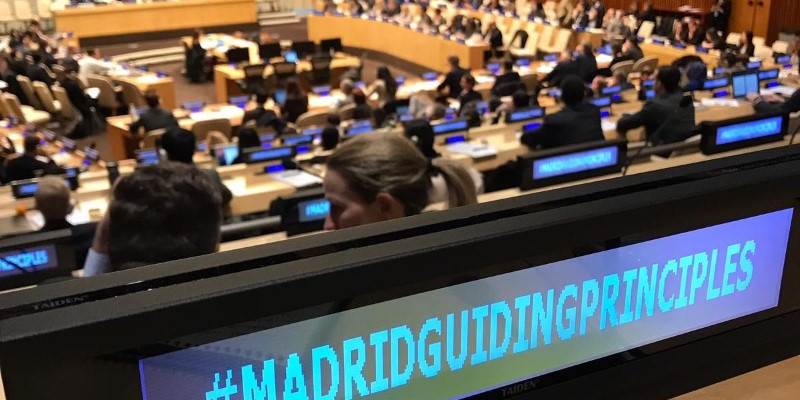Chair,
Let me start by thanking the Counterterrorism Committee for its leadership in addressing international terrorism and violent extremism. Norway welcomes the efforts to review the Madrid Guiding Principles.
The threat from terrorism and violent extremism remains high and continues to evolve. ISIL still controls small pockets of territory in Syria and they are still present in Iraq. Their “virtual caliphate” remains intact. ISIL is not yet defeated. The returning foreign fighters remain a serious global challenge.
Out of approximately 100 Norwegian foreign fighters who have traveled to Syria and Iraq, about 30 have been killed. Approximately 30 are still in the region and their status is unknown. About 40 foreign fighters have returned to Norway.
National governments have the primary responsibility for countering terrorism and preventing violent extremism. The complex nature of this threat underscores the need for partnerships.
Moreover, the threat from terrorism and violent extremism must be met with a comprehensive, long-term, whole-of-society approach.
Chair,
The basis for Norway’s approach is the National Action Plan for Preventing Radicalization and Violent Extremism. The Government reports on the measures set out in the Action Plan.
Norway’s policies are based on broad cooperation between authorities and civil society organizations, at national and local levels. For this to be successful, it has to be a genuine two-way dialogue.
The Norwegian Government has put counterterrorism and preventing violent extremism high on its agenda. We support the five lines of effort of the Global Coalition against ISIL. In 2017, Norway and the Kingdom of Jordan established a Permanent UN Group of Friends of PVE.
Chair,
Let me highlight four points of importance for the review of the Madrid Guidelines.
First, the security risk associated with returning foreign fighters should be determined on a case-by-case basis. Effective investigation and prosecution of acts of terrorism and violent extremism is key.
We should keep in mind that returnees are not a homogeneous group, i.e. men, women and minors. The Guidelines should therefore effectively integrate a gender approach when dealing with returnees, re-integration and rehabilitation.
It is also clear that some foreign fighters have been actively involved, whilst others have had looser affiliations. This requires tailored responses and approaches.
Second, the respect for human rights is at the core when preventing terrorism and violent extremism. Moreover, the UN Global Counterterrorism Strategy’s fourth pillar underscores that countering terrorism and protecting human rights are “complementary and mutually reinforcing” goals.
A growing body of evidence shows that violations of human rights committed by states, whether real or perceived, are often cited as the tipping point for individuals to become radicalized to violence. The protection of human rights and fundamental freedoms must be given greater priority.
Third, as part of our prisons and probation services, we have strengthened the cooperation between relevant authorities in order to follow up prisoners serving sentences for terrorism when in prison and with regard to re-integration to society when released. This is relevant when developing prevention and rehabilitation strategies.
Fourth, and as noted above, civil society organizations are powerful counterweights to violent extremist movements. Norway has taken several international initiatives to include youth, women and civil society in the preventive work. The positive role of civil society should be highlighted.
